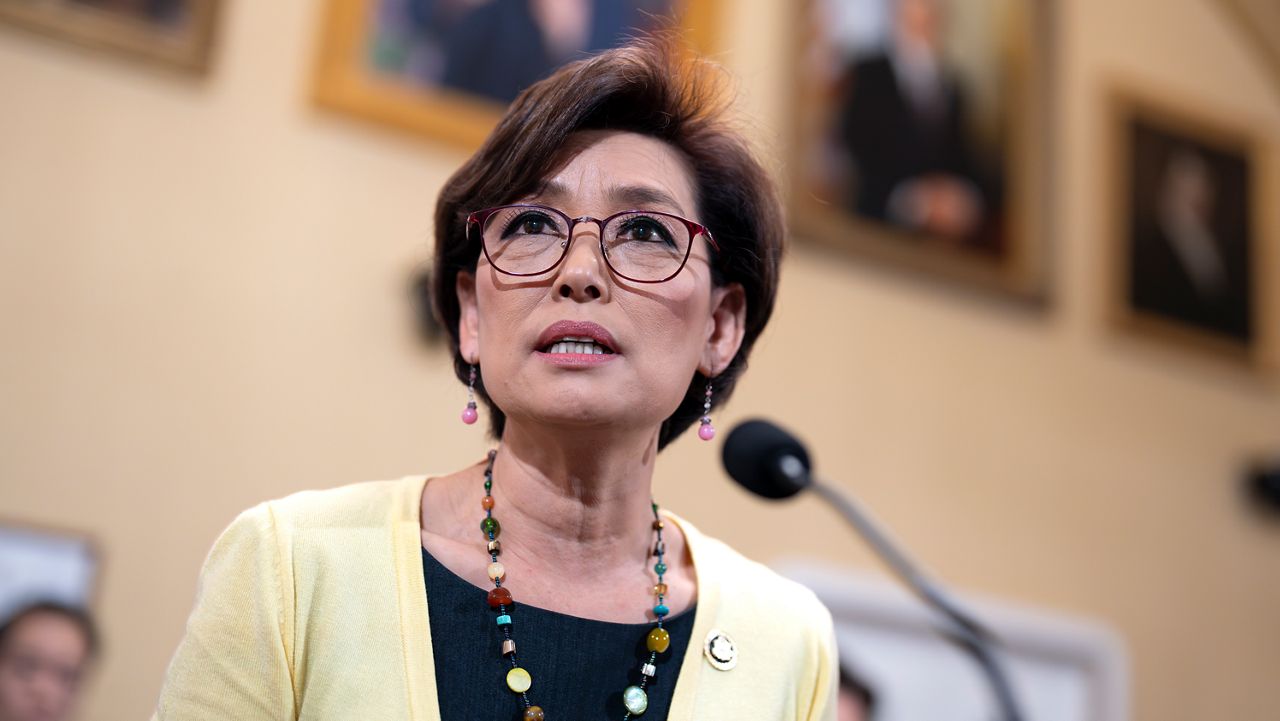Senate Majority Leader Chuck Schumer, D-N.Y., announced a sweeping bill on Wednesday that will decriminalize marijuana at the federal level, a key milestone signaling shifting attitudes in Washington toward cannabis.
Along with Sens. Ron Wyden, D-Ore., and Cory Booker, D-N.J., Schumer unveiled a draft of the Cannabis Administration and Opportunity Act, which intends to decriminalize and deschedule cannabis from the Controlled Substances Act, expunge federal nonviolent marijuana-related crimes and establish a “path for responsible federal regulation of the cannabis industry” while respecting the “integrity of state cannabis laws.”
At a joint press conference on Wednesday, Schumer called the bill "monumental," adding: "At long last, we are taking steps in the Senate to right the wrong of the failed war on drugs."
Schumer noted he was the first Democratic leader to publicly support the legalization of marijuana, and pledged to "use [his] clout as majority leader to make this a priority."
"For justice and for freedom, it makes eminent, eminent sense to legalize marijuana," Schumer said.
"We have all seen the agony of a young person arrested with a small amount of marijuana in his or her pocket, and because of the historical over-criminalization of marijuana," he added. "They have a very severe criminal record they have to live with their whole lives."
“It’s our legislative proposal to end the federal prohibition on marijuana and repair damage done by the War on Drugs—especially in communities of color,” Schumer said of the bill on Twitter.
“It's past time to bring our nation's outdated, racist cannabis laws into the 21st century and ensure equal justice for Americans hurt by the failed war on drugs,” Wyden wrote on Twitter, ading: “Our legislation will do just that.”
“Voters across the country agree that it's time to end federal prohibition,” the Orgeon Democrat added, noting that the lawmakers are hoping to get the bill passed next year. “We’ll be working around the clock until we succeed.”
But whether or not they can actually get the bill across the finish line will be a major test for the Democratic caucus. While the bill would be supported by progressives and would likely pass the House, it would face an uphill battle against Senate Republicans.
The bill would also require the support of President Joe Biden, who has supported deciminalizing marijuana, but does not back legalization. Schumer pledged in April to "move forward" on legislation to legalize marijuana with or without the support of the president.
At a press briefing later Wednesday, White House press secretary Jen Psaki said," I’ve spoken in the past about the president’s views on marijuana, and there’s no change."
“I want to make my arguments to him, as many other advocates will,” Schumer told Politico in April. “But at some point we're going to move forward, period.“
Back in May, House Judiciary Committee Chairman Jerry Nadler, D-N.Y., introduced the Marijuana Opportunity Reinvestment and Expungement Act of 2021, or the MORE Act, in the House; The bill is a similar measure which would expunge marijuana-related criminal records, create social equity programs and decriminalize marijuana at the federal level.
"Since I introduced the MORE Act last Congress, numerous states across the nation, including my home state of New York, have moved to legalize marijuana," Nadler said. "Our federal laws must keep up with this pace."
The MORE Act passed the House in 2020 by a 268-164 vote, the first time a chamber of Congress voted to end the federal prohibition of marijuana, but the bill died in the Republican-controlled Senate. Then-California Sen. Kamala Harris introduced the bill on the Senate side in July 2019 while running for president.
In 2012, Colorado became the first state to leagalize the recreational use and sale of marijuana. As of July 1, recreational cannabis is legal in 18 states, as well as Washington, D.C., the Northern Mariana Islands and Guam (Residents in South Dakota voted to pass the legalization of recreational marijuana in 2020, but a state circuit court overturned the law; The case is being appealed to the state's supreme court).
Medical cannabis is legal in 36 states, plus D.C., Guam, Puerto Rico and the U.S. Virgin Islands









